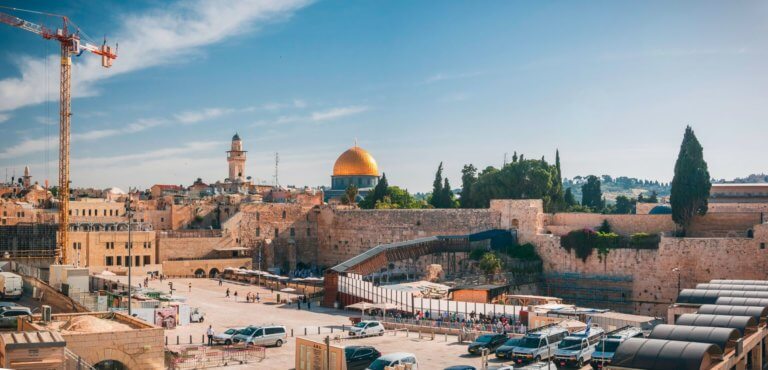Overcoming Defeat
Journey Into The Promised Land
The Greatness Of God
During the next few days we are going to mediate on seven steps to personal victory taught in 2 Chronicles 20 where Jehoshaphat faced an overwhelming challenge as a massive enemy army advanced towards him.
The first step Jehoshaphat took toward the solution of his problem was that he fully recognized Who he was calling upon. Jehoshaphat established that the God that he was calling upon is the God of Heaven, the God of all creation.
To let the magnitude of that statement really grip you, just step outside on a clear night, look up into the starry sky, and locate the family of the Big Dipper. In the bowl of that Dipper, the astronomers now tell us that they can locate more than one million galaxies of stars. They estimate that in the entire universe there are more than one billion galaxies.
Jehoshaphat remembered the words of King David, who said, “The heavens declare the glory of God; and the firmament sheweth his handiwork” (Psalm 19:1). If you or I had been in Jehoshaphat’s shoes at this moment with his nation facing annihilation, would we simply be recounting the glories of God and what He had done in the past? Or would we be doing something else?
Many belong to what I call the “Gimme Club.” That is the vernacular for the “Give me, give me, give me” prayers that are so common in the Christian realm. If doom were hanging over our heads, the first thing we would do is cry out to God to immediately destroy our enemy or to deliver us completely from the enemy’s presence.
But what did Jehoshaphat do? It is strange that he never mentions his problems at the beginning of his prayer. He approaches God as the God of creation and the God of his spiritual forefathers, Abraham, Isaac, and Jacob. At the very outset he is recounting the power and glory of his Heavenly Father. He actually is starting out by acknowledging God above all.
Do you think he is saying all of this to build God’s confidence in His own ability to deliver Israel? Do you think that he really intends to tell God something which God doesn’t already know? Of course not! What Jehoshaphat is saying is for the purpose of bolstering his own faith in order to remind himself of Who he is really speaking to and the potential power of God that can be unleashed on behalf of His people.
If you read between the lines here, you will hear Jehoshaphat say, “Here comes Ammon, Moab and Mount Seir, but God, I just want You to know something: I’m going to ask You to do something that I know You are fully capable of doing, have done before, and will do again.”
Instead of coming to God under the heavy burden of those attacking nations, he is acknowledging God’s greatness.
Make this declaration:
O Lord God, are you not still God in heaven? Don’t you rule over all the kingdoms of the heathen? And in Your hand is there not power and might, so that none is able to withstand You?
*Adapted from MCWE email – Journey Into The Promised Land by Morris Cerullo






